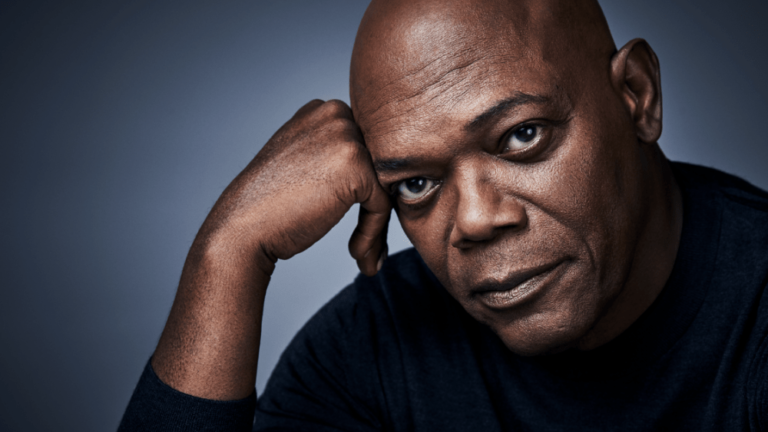Health service was ‘within 6 to 7 hours’ of running out of gowns at one point during pandemic, Hancock tells inquiry
Back at the Covid inquiry, Matt Hancock, the former health secretary, is being asked about PPE. He has just said that at one point the country was “within six or seven hours” of running out of gowns.
Hancock was being asked about this chart, showing how long stocks of various types of PPE were expected to last before they ran out.

Earlier in his evidence this afternoon Hancock said that, although individual hospitals may have run out of PPE, the country as a whole never ran out.
Jacqueline Carey KC, counsel for the inquiry, put it to him that that was not any consolation to health staff who went without PPE.
Key events
Here is our obituary of John Prescott by Stephen Bates.
Swinney says he does not want Stephen Flynn ‘double jobbing’ row to become distraction for SNP

Libby Brooks
The ongoing row about the prospect of SNP Westminster leader Stephen Flynn “double jobbing” risks becoming a distraction for the party, first minister John Swinney has warned.
Flynn has faced a furious backlash amongst MSPs after he announced that he was planning to stand for the Holyrood seat of Aberdeen South and North Kincardine, currently held by his SNP colleague Audrey Nicoll, in the 2026 Holyrood elections. Flynn also confirmed he would aim to hold his Westminster seat until the next general election, due in 2029, but would not accept two salaries.
The SNP has previously been highly critical of previous Scottish Tory leader Douglas Ross for holding seats in both parliaments, and Flynn’s colleagues are privately angry at the implication that a Holyrood position does not amount to a full-time job, as well as what many see as the high-handed way he’s attempting to oust a respected female colleague.
Asked about the escalating conflict after FMQs, Swinney said that Flynn was a “great star” but added:
What I want to make sure is that the SNP is in no way distracted by internal issues. It’s been a mantra of mine that I want us to look outwards not inwards.
At the last Scottish parliament election, the SNP’s national executive committee made a ruling that any MP standing for Holyrood would have to resign their Westminster seat. The NEC has until next spring to decide its candidates’ rules, so this row could go on and on.
Pluralism campaigner Neal Lawson avoids expulson from Labour after 17-month probe into tweet backing tactical voting
Neal Lawson, a prominent Labour activist, has been told that he won’t be expelled from the party over a tweet that backed tactical voting.
Lawson is director of Compass, a leftwing group that campaigns for more pluralism in progressive politics. He has been cleared by Labour after a 17-month investigation into something he retweeted in May 2021, from the Lib Dem MP Layla Moran urging people to vote Green in a council ward where the Lib Dems weren’t standing. Moran said pointed out that she had only won her parliamentary seat in 2017 as a result of the Greens standing aside.
In a comment Lawson described this as “proper grown up progressive politics” from both Moran and the Greens. But Labour launched an investigation on the basis that he may have broken rules saying members should not support rival parties.
The decision to launch disciplinary action against Lawson was seen by many in the party as an example of excessive control freakery. Even Keir Starmer was said to be surprised by the move. Under Starmer many leftwing Corbynites have been ruthlessly thrown out of the party, or blocked from standing as candidates, but Lawson is not part of that faction.
At the time Lawson wrote an article for the Guardian saying he hoped “Labour’s persecutors and witchfinders” would fail and that “pluralism, that ugly but powerful word, is the force that will shape anything that is progressive”.
Today, in a news release, Compass said Lawson has been told he did not break party rules. The organisation said:
Compass has long argued for tactical voting, closer cooperation between progressive parties and for a voting system that better reflects the latent progressive majority in this country.
At the last election, Labour showed it also recognised the importance of tactical campaigning by ruthlessly targeting its resources in seats it could win and actively discouraging campaigning elsewhere. Thus they were inviting voters to do exactly what Mr Lawson was advocating – supporting the best placed progressive to win.
A Compass spokesperson said:
We welcome this decision and hope Labour can begin to recognise what Compass has been arguing for years: that no single faction or party can navigate the chaos of the 21st century alone.
Labour must be an open tribe if it has any chance of tackling the turbulent challenges of the 21st century – if it fails, the far right is waiting in the wings.
Supporters of assisted dying should abandon vote next week, and push for government review instead, Ed Balls suggests
Supporters of assisted dying should give up trying to get Kim Leadbeater’s private member’s bill through the Commons, and instead get the government to commission a proper review into how legislation should work, Ed Balls, the former Labour cabinet minister has suggested.
Speaking on his Political Currency podcast, Balls said legislation this significant should be introduced by the government, following proper consultation.
MPs are due to vote on the bill at second reading a week tomorrow. Increasingly it looks as if the Commons will vote against. Even if it passes, experts say it will never become law unless ministers allocate extra time for it – which so far they have declined to promise.
Explaining his stance, Balls said:
I would vote against this bill if I was in parliament now at the second reading, but not because I’m opposed to action on assisted dying at all.
But I don’t think parliament can cross the massive threshold of conceding the principle that it is acceptable for doctors and the courts to cooperate in the taking of somebody’s life – unless you are absolutely sure you know how it will work in practice, legally, and in terms of resources and in terms of the difficult cases. And I just don’t feel that that’s where we are. There isn’t yet enough solidity, and the government has to kind of engage in this more.
What should happen is after the opening speeches, there should be a statement in the house or publicly or from Downing Street to say ‘We think Kim Leadbeater has done a brilliant job of raising this issue, we don’t think yet we’ve got to a place where we can see a way forward. What the government is now going to do is start some kind of review process.’
Could be a Royal Commission, could be judge-led, it could be a small panel expert-led to report with a fixed date, next year.
At that point, Kim Leadbeater says, ‘Look, you know, I’ve got as far as I can with this bill.’ She withdraws, the bill drops, the private members bill. We have that process, and then we come back, if it can be made to work with government legislation next year. That is the best way, and I think it may be the only way.
George Osborne, who co-hosts the podcast with Balls, said that he was now in favour of assisted dying, having been opposed in the past, but that he also did not think Leadbeater bill would become law.
Minister says leasehold reform will take longer than expected because ‘serious flaws’ in Michael Gove’s bill need to be fixed
The government has indicated that its proposed new law “to bring the feudal leasehold system to an end” will take longer than expected.
The last government proposed leasehold reform, but it was accused of watering down its original plans and, by the time the election was called, its leasehold and freehold reform bill had not cleared parliament. A very basic version was rushed through parliament just before the dissolution.
In the king’s speech the government promised to publish a new, more extensive draft leasehold and commonhold reform bill that would implement Law Commission reform proposals that had been dropped by the Tories. The government said it wanted “to bring the feudal leasehold system to an end, reinvigorating commonhold through a comprehensive new legal framework and banning the sale of new leasehold flats so commonhold becomes the default tenure.”
But today, in a written ministerial statement, Matthew Pennycook, the housing minister said the draft bill is not expected to be published until the second half of 2025.
He said the process was more complicated than expected because he had been told that the Tory act, which was pushed through parliament by Michael Gove, contained “a small number of specific but serious flaws” that would have to be fixed by primary legislation.
Pennycook went on:
These serious flaws include a loophole which mean the act goes far beyond the intended reforms to valuation and that undermines the integrity of the amended scheme. In addition we must correct an omission that would deny tens of thousands of shared ownership leaseholders the right to extend their lease with their direct landlord given that the providers in question do not have sufficiently long leases to grant 990-year extensions.
This government will not make the same mistakes as the last when it comes to reforming what is, without question, an incredibly complicated area of property law. While we intend to continue to work at pace, we will take the time necessary to ensure the reforms we pass are fit for purpose.
Pennycook also said a white paper on commonhold reform would be published early next year.

Jessica Murray
In Birmingham, MP Jess Phillips and former West Midlands mayor Andy Street are among those who have gathered to pay tribute to the victims of the 1974 pub bombings in the city, on the 50th anniversary of the atrocity in which 21 were killed and 220 injured.
Survivors and families of the victims have today renewed their calls for a public inquiry into why no one has been brought to justice for the attacks, with Street saying he “deeply regrets that the previous government didn’t get to award it”. He told the BBC:
Twenty-one people lost their lives and we still to this day do not know exactly what happened and who the perpetrators were. One of the principles of British justice is that you should get to a closure. You might now not be able to hold those accountable for it but I do still feel that that needs to be done.
Following a one-minute silence at the memorial service outside New Street station, Phillips read out the names of the deceased and the Duchess of Edinburgh read out a message on behalf of King Charles.
The king’s message said:
My wife and I would like to take this opportunity to say that you and all those affected by this dreadful attack remain very much in our thoughts. What happened on this day 50 years ago was one of so many dreadful tragedies in a devastating period that touched us all, many of us very personally.
I must also express my sincere admiration for the people of Birmingham who have lived so courageously with the grief of that day and the days that followed.
Asked about racial disparities in Covid deaths, Hancock told the inquiry that this was an issue he was alert to because he had already taken an interest in institutional racism in the NHS. But he also said some the “hard left stuff” put out by NHS bodies to address this were not the right way forward.
Hancock tells Covid inquiry he does not accept NHS was ‘overwhelmed’ during pandemic
During evidence this morning Hancock was challenged when he claimed that the NHS was not overwhelmed during the pandemic.
Jacqueline Carey KC , counsel for the inquiry, put it to Hancock:
The fact that the nurses are being stretched to the ratios that we’ve looked at and the potential adverse consequences for those who are in ICU does not in fact demonstrate the NHS was, in fact, overwhelmed.
And Hancock replied:
No, because people could get treatment. The treatment was not as good as in the same way that the waiting times for a knee operation was not as good as pre-pandemic.
I’m not saying that the NHS was perfect in the pandemic, and I’m not saying that it wasn’t severely pressured in many areas and that that pressure had consequences. The point of saying that it would be overwhelmed is that the system as a whole, withstood the pressure.
As Martin Bagot reports in a story for the Mirror, Carey pushed back at this point, saying that if people were not getting the treatment they would normally get, they would think the system was overwhelmed. Bagot says the exchanges got testy, and that some relatives of people who died who were attending the hearing seemed to get distressed by what they were hearing.
Hancock tells the inquiry that some hospitals refused to test their staff for Covid because they did not want to lose too many people off sick.
He says that is an example of a “cultural problem in the NHS” in that not enough is done to tackle “nosocomial infection” (infection picked up during a medical procedure).
Health service was ‘within 6 to 7 hours’ of running out of gowns at one point during pandemic, Hancock tells inquiry
Back at the Covid inquiry, Matt Hancock, the former health secretary, is being asked about PPE. He has just said that at one point the country was “within six or seven hours” of running out of gowns.
Hancock was being asked about this chart, showing how long stocks of various types of PPE were expected to last before they ran out.
Earlier in his evidence this afternoon Hancock said that, although individual hospitals may have run out of PPE, the country as a whole never ran out.
Jacqueline Carey KC, counsel for the inquiry, put it to him that that was not any consolation to health staff who went without PPE.
The flag at the Guildhall in Hull is flying at half-mast to mark the death of John Prescott, who was an MP for the city for 40 years. The city council has posted this on social media.
The Guildhall flag is flying at half-mast following the death of Lord Prescott.
The former Deputy Prime Minister represented the city as the MP for Hull East for 40 years following his election in 1970.
You can read tributes to Lord Prescott here: https://t.co/0agXcCHaRT pic.twitter.com/ZYFixrzezY
— Hull City Council (@Hullccnews) November 21, 2024
Tributes from the council are here. And there is a good round-up of tributes to Prescott on the LabourList website too.
Overseas territories continue to delay setting up public registers of beneficial ownership

Patrick Wintour
David Lammy’s announcement of sanctions against kleptocrats (see 1.19pm) came as crown dependencies and overseas territories (OTs) wrapped up a joint ministerial council in London at which resistance to the decade-old UK demand to set up public registers of beneficial ownership was once again raised. Public registers, by ending the secrecy surrounding the transfer of assets to tax havens, make it easier for campaigners to expose money laundering, as well as deter it taking place in the first place. The last missed deadline was for the end of 2023.
The key OTs have found a series of reasons not to implement the measure including citing a 2022 European Court of Justice ruling saying the registers breach European privacy laws. None of the OTs are inside the EU but they argue they cannot afford to have stricter declaration laws than other countries or else funds will leave their jurisdiction.. As prime minister ahead of the G8 in Northern Ireland in 2016 David Cameron first set out the UK goal of setting up registers, but a succession of deadlines have been allowed to be missed with no action taken by the government to impose registers.
The lack of the registers, as well as the presence in London of money laundering enablers, is the Achilles heel of the UK’s efforts to become an international leader in the fight against corruption.
Stephen Doughty the Foreign Office minister, has written to the OTs setting out his expectation that the registers will be set up, and has visited some of the territories to seek their cooperation.
A spokesperson for the Cayman Islands government said it was continuing to work towards an “enhanced beneficial ownership framework” by the end of 2024,.
A cross-party coalition of 40 MPs in a letter earlier this week called for ugent action against the overseas territories.
Lammy claims ‘golden age of money laundering’ in UK coming to end as sanctions announced against kleptocrats

Patrick Wintour
David Lammy, the foreign secretary, claimed he was bringing the golden age of money laundering to an end when he announced sanctions against three high-profile kleptocrats and their key enablers.
Lammy said the tide was being turned on corruption after a long period when the previous government allowed the role of London as a money laundering capital to continue.
When Labour was in opposition Lammy stressed how much damage Britain’s role in laundering corrupt money was causing the country’s reputation in the global south, as well as the damage done to the international financial system,.
The three main designations announced today cover: Dmitry Firtash who is known to have extracted hundreds of millions of pounds from Ukraine, hiding millions in the UK property market; Isabel Dos Santos, the daughter of Angola’s former president who is accused abused her positions at state-run companies to embezzle at least £350m; and Aivars Lembergs, one of Latvia’s richest people, who abused his political position to commit bribery and launder money.
Firtash has already been sanctioned in other jurisdictions. The UK also sanctioned his wife, Lada Firtash, who has profited from his corruption and holds UK assets on his behalf, including the site of the old Brompton Road tube station, as well as Denis Gorbunenko, a UK-based financial ‘fixer’ who enabled and facilitated Firtash’s corruption.
Dos Santos was once dubbed ‘Africa’s richest woman’. She has been subject to an Interpol Red Notice since November 2022 and just last month lost a case at the court of appeal regarding her worldwide asset freeze. The UK also said it was sanctioning her business partner Paula Oliveira, and her chief financial officer Sarju Raikundalia. The Foreign Office said both had helped Dos Santos funnel Angola’s national wealth for her own benefit. It is not known how many assets they still have in the UK.
Lammy said:
These unscrupulous individuals selfishly deprive their fellow citizens of much-needed funding for education, healthcare and infrastructure – for their own enrichment.
I committed to taking on kleptocrats and the dirty money that empowers them when I became Foreign Secretary and these sanctions mark the first step in delivering this ambition. The tide is turning. The golden age of money laundering is over.
Scottish government’s budget will involve ‘honest conversation’ with voters, says John Swinney

Libby Brooks
At FMQs today the Scottish Conservative leader Russell Findlay attacked John Swinney over today’s Audit Scotland report which was damning in its criticism of the Scottish government’s lack of long-term strategy over public finances.
The report also criticised the SNP’s short-term fixes, lack of transparency and warned that fundamental changes were needed to keep public services affordable.
Swinney insisted that financial constraints on his budget were the result of UK Tory austerity, trotting out his favourite jibe about Findlay’s future previous support for Liz Truss, and said next month’s budget would involve “an honest conversation with the people of Scotland”.
Meanwhile the Scottish Greens’ co-leader Lorna Slater pressed Swinney on whether the budget would introduce a public health levy on alcohol and tobacco, as health campaigners lobby his government to introduce one.
Swinney said he couldn’t pre-empt budget decisions, arguing the finance secretary was facing pressure from all sides with a budget under severe constraints thanks to inflation and hefty public sector pay deals.
Downing Street has described unconfirmed reports that Russia may have fired an intercontinental ballistic missile into Ukraine as “deeply concerning”.
Asked about this at the morning lobby briefing, the PM’s spokesperson said:
As you will understand it is a rapidly developing situation and I don’t want to get ahead of our intelligence services who are looking at these reports urgently, but if true, clearly this would be another example of grave, reckless and escalatory behaviour from Russia and only serves to strengthen our resolve.
Martin Belam had more coverage of this story on today’s Ukraine war live blog
Keir Starmer has defended the government’s decision to register 470 delegates to attend the Cop29 climate conference in Baku in Azerbaijan.
During his Commons statement he was asked about the large number of people attending by the independent MP Shockat Adam who asked if the cost was justified, particularly given the cut to winter fuel payments.
Starmer said the British contingent was small than it was at last year’s Cop, and that there was “a lot of negotiation” to be carried out there. “It’s absolutely vital that we’re doing that important work,” he said.
John Healey, the defence secretary, has been giving evidence to the Commons defence committee this morning. But he wouldn’t confirm that Ukraine has started firing Storm Shadow missiles provided by Britain at Russia. Asked to confirm these reports, Healey said:
I won’t be drawn on the operational details of the conflict. It risks both operational security and in the end the only one that benefits from such a public debate is President Putin.
Healey also said this was a “serious moment” for Ukraine and he said battle lines were now “less stable than at any time since the early days of the full scale Russian invasion”.
UPDATE: Healey said:
This is a serious moment that I come before the committee. Defence intelligence will reveal today that the front line is now less stable than at any time since the early days of the full scale Russian invasion in 2022.
We have seen in recent weeks a very clear escalation from Putin and his forces. They have stepped up attacks on the energy system in Ukraine ahead of winter, they have stepped up attacks on civilian centres killing children, they have deployed at least 10,000 North Korean troops to the battle front line.
And there are unconfirmed but media reports today of Russia firing a new ballistic missile into Ukraine which we know they have been preparing for months.
While the Ukrainian actions on the battlefield speak for themselves, be in no doubt that UK government is stepping up our support for Ukraine, determined to continue doubling down our support for Ukraine.
The Guardian columnist Martin Kettle has sent me this anecdote, which he describes as his favourite memory of the late John Prescott. Martin says:
I was at a Labour conference in Blackpool in the 90s and I bumped into him back stage in the press room and he said: “Is your fella Steve Bell here?” I said, yes, Steve was. “Well can you introduce me? He always draws me as Tony’s dog, and I’m not a fuckin’ dog.” Steve was sitting quite nearby, so I nervously made the introductions as the two big guys met up. Within a few seconds, Prescott’s threatening manner vanished and he and Steve were in stitches about some joke or other. Then, as Prescott was leaving he turned and squared up to Steve and said. “No dogs, OK?”
Of course it made absolutely no difference whatever, and Steve kept on drawing him as a dog.

















+ There are no comments
Add yours